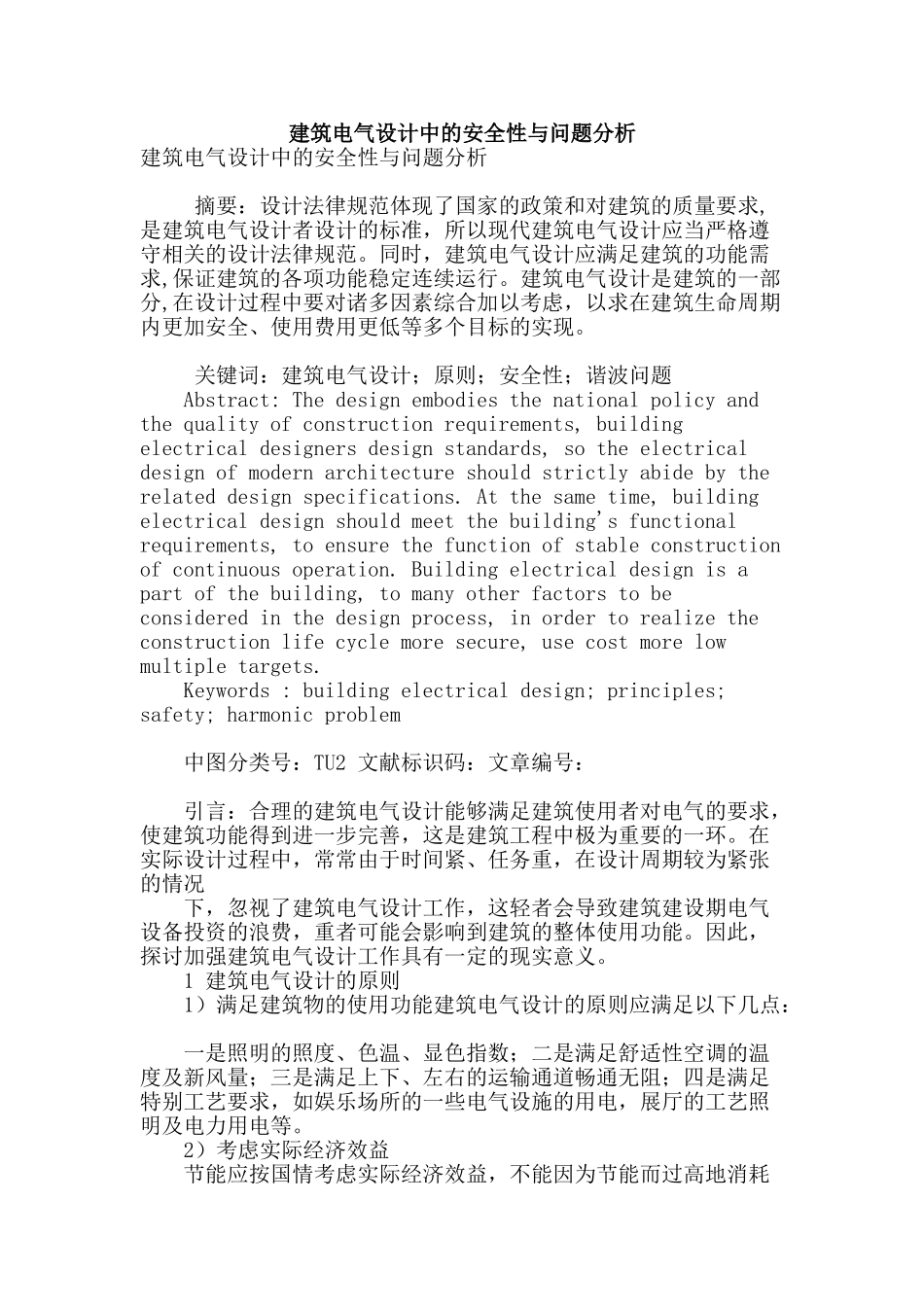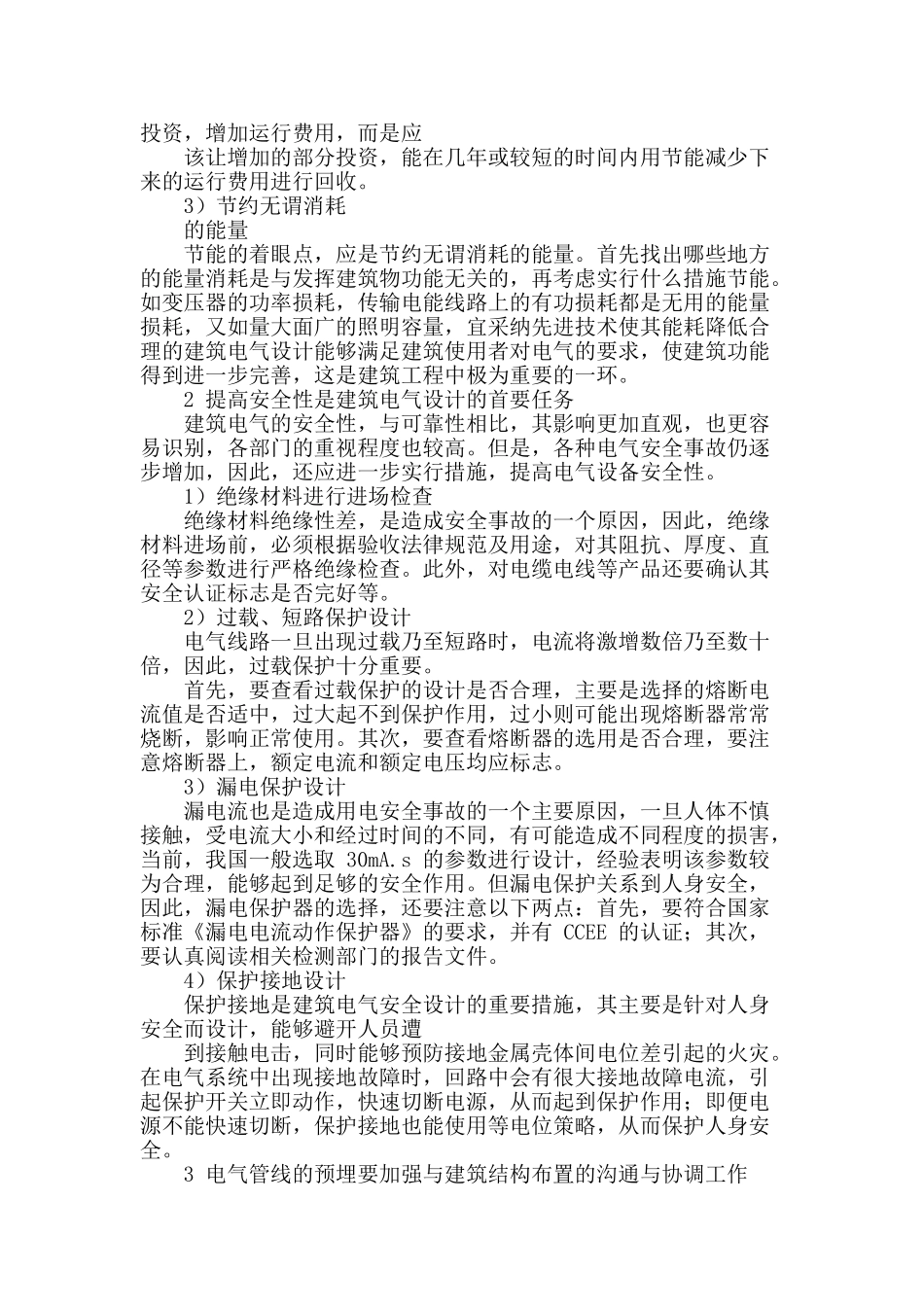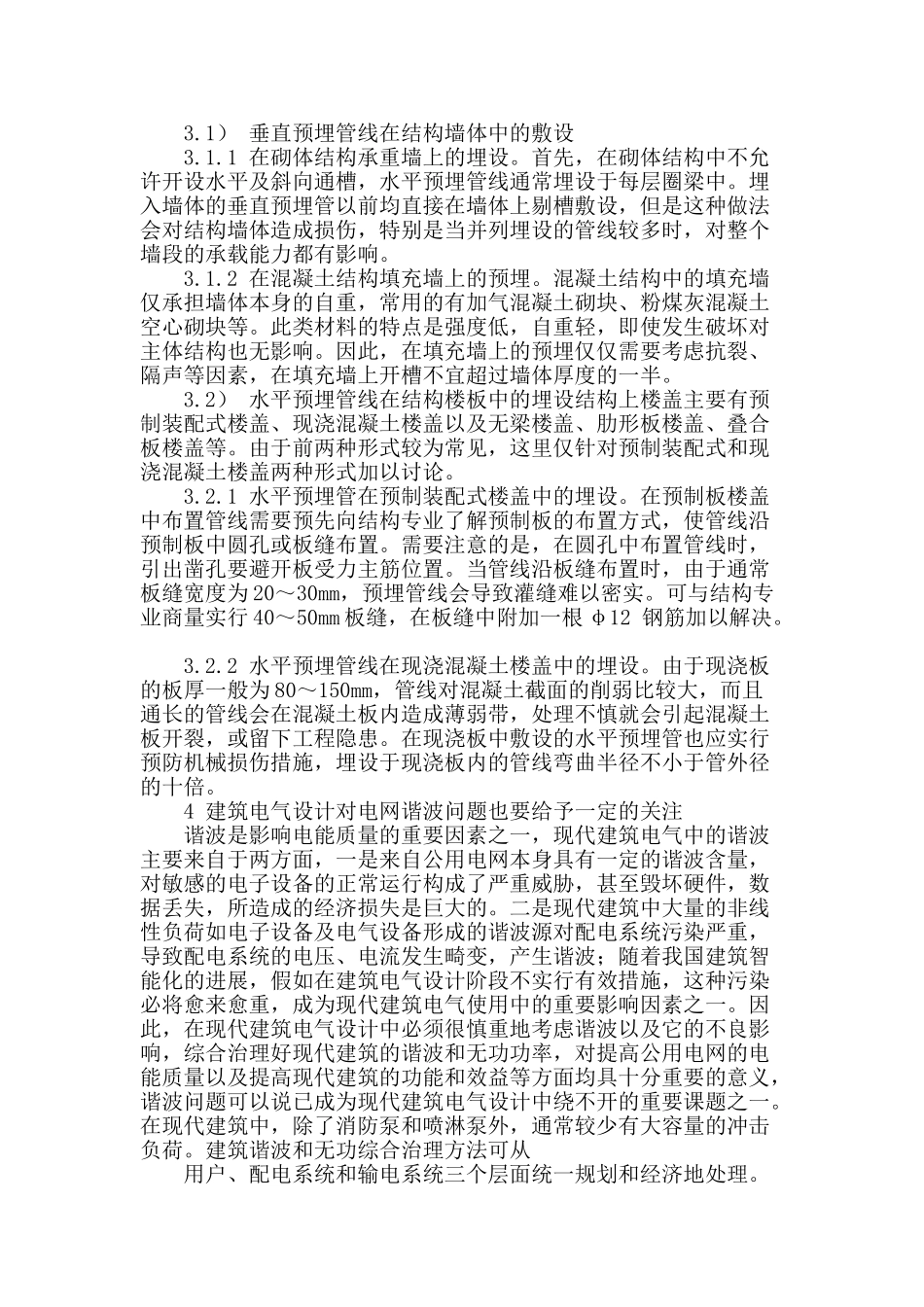建筑电气设计中的安全性与问题分析建筑电气设计中的安全性与问题分析 摘要:设计法律规范体现了国家的政策和对建筑的质量要求,是建筑电气设计者设计的标准,所以现代建筑电气设计应当严格遵守相关的设计法律规范。同时,建筑电气设计应满足建筑的功能需求,保证建筑的各项功能稳定连续运行。建筑电气设计是建筑的一部分,在设计过程中要对诸多因素综合加以考虑,以求在建筑生命周期内更加安全、使用费用更低等多个目标的实现。 关键词:建筑电气设计;原则;安全性;谐波问题 Abstract: The design embodies the national policy and the quality of construction requirements, building electrical designers design standards, so the electrical design of modern architecture should strictly abide by the related design specifications. At the same time, building electrical design should meet the building's functional requirements, to ensure the function of stable construction of continuous operation. Building electrical design is a part of the building, to many other factors to be considered in the design process, in order to realize the construction life cycle more secure, use cost more low multiple targets. Keywords : building electrical design; principles; safety; harmonic problem 中图分类号:TU2 文献标识码:文章编号: 引言:合理的建筑电气设计能够满足建筑使用者对电气的要求,使建筑功能得到进一步完善,这是建筑工程中极为重要的一环。在实际设计过程中,常常由于时间紧、任务重,在设计周期较为紧张的情况 下,忽视了建筑电气设计工作,这轻者会导致建筑建设期电气设备投资的浪费,重者可能会影响到建筑的整体使用功能。因此,探讨加强建筑电气设计工作具有一定的现实意义。 1 建筑电气设计的原则 1)满足建筑物的使用功能建筑电气设计的原则应满足以下几点: 一是照明的照度、色温、显色指数;二是满足舒适性空调的温度及新风量;三是满足上下、左右的运输通道畅通无阻;四是满足特别工艺要求,如娱乐场所的一些电气设施的用电,展厅的工艺照明及电力用电等。 2)考虑实际经济效益 节能应按国情考虑实际经济效益,不能因为节能而过高地消耗投资,增加运行费用,...


